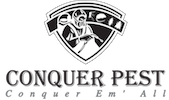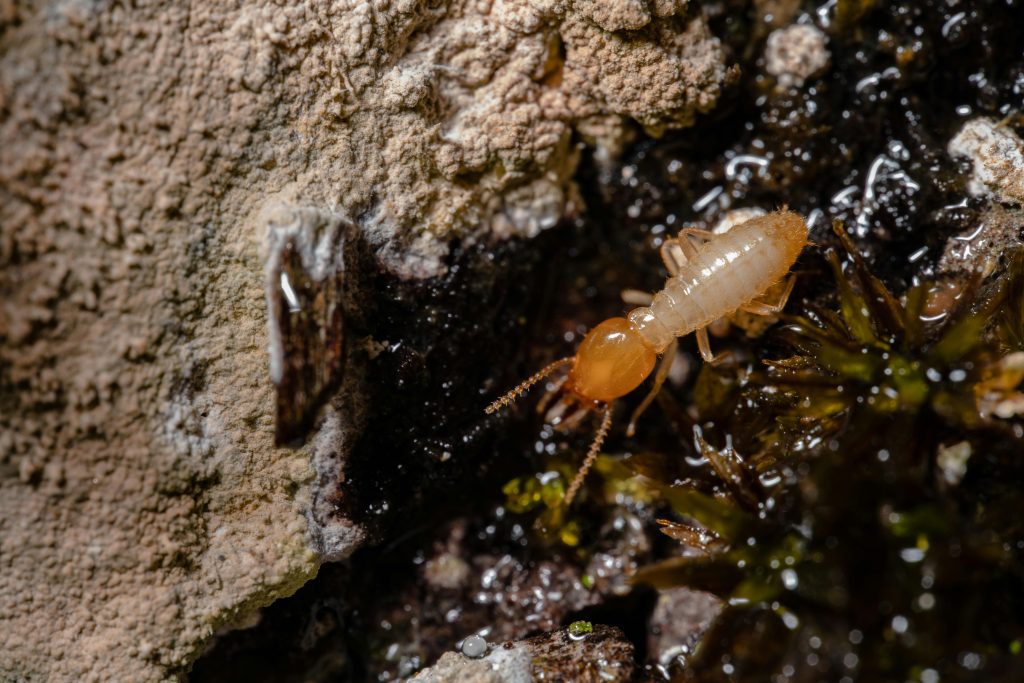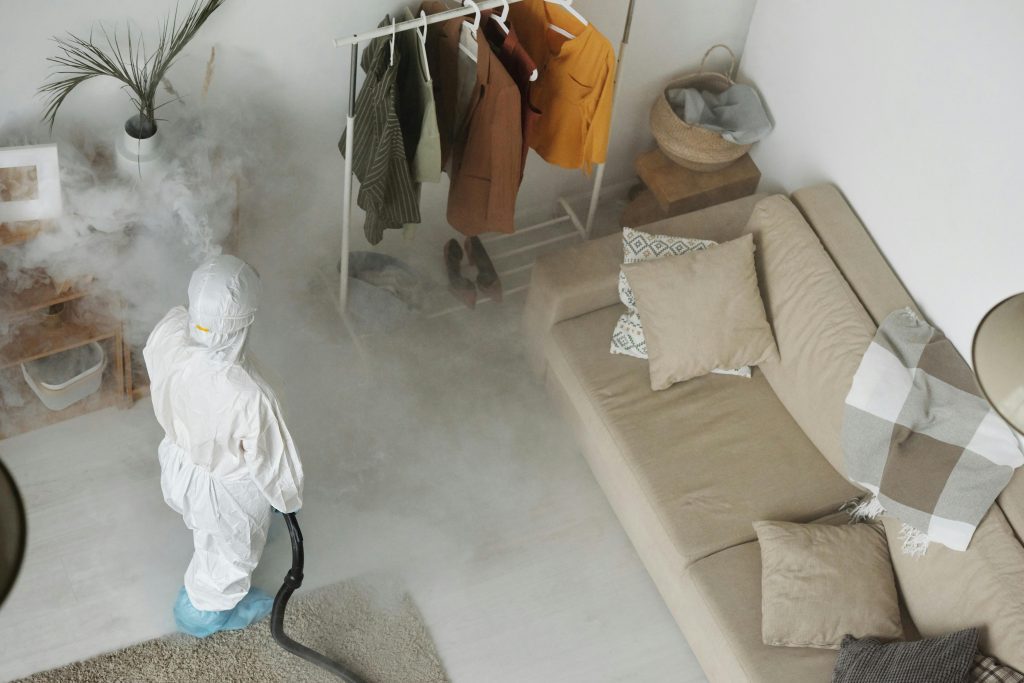3 Common Types of Termites Every Home and Business Owner Should Know About
Termites, often referred to as “silent destroyers,” are among the most damaging pests to homes and businesses. Their destructive capabilities are well-documented, and their infestations can lead to significant property damage, costly repairs, and disruption to daily life. As a homeowner or business owner, understanding the types of termites that may invade your property is critical in safeguarding your investment. In this article, we’ll explore three common types of termites in Singapore that every property owner should know about. We’ll also provide helpful tips on how to protect your property and how professional pest control services can assist in eradicating these pests.
Understanding Termite Behavior
Before diving into the specifics of different termite species, it’s essential to understand the general behavior of termites. These insects feed primarily on cellulose, a substance found in wood and plant matter. Their diet means they are typically drawn to wooden structures, including furniture, beams, and support posts in your home or office.
Termites live in colonies and have a complex social structure, which includes a termite king and queen, workers, soldiers, and swarmers. Each caste has a specific role to play:
- Worker termites are the most common and do the actual feeding, tunneling, and building.
- Soldier termites protect the colony from predators.
- Swarmers (flying termites) are responsible for reproduction and establishing new colonies.
Due to their highly organized system, termites can cause extensive damage before their presence is even noticed. This makes professional termite control an essential investment to ensure your property remains safe.
1. Subterranean Termites
Subterranean termites are the most common type of termites in Singapore and are responsible for a majority of infestations in both residential and commercial properties. As their name implies, they live underground in soil, where they maintain constant contact with moisture. Subterranean termites are especially dangerous because of their ability to build mud tubes, which they use to travel between their nests and food sources.
Key Characteristics:
- Mud tubes: These pests construct mud tunnels that run from the soil to wooden structures above ground.
- Moisture dependence: They need moisture to survive, which is why they often invade areas with high humidity or moisture.
- Destructive: These termites can weaken the structural integrity of your property by feeding on wooden beams, furniture, and more.
Signs of Infestation:
- Mud tubes along the foundation of your building or in wall cavities.
- Swarming termites, especially around light fixtures or windows.
- Hollow or damaged wood, which may have a soft, spongy texture.
If you suspect a subterranean termite infestation, it’s important to act quickly. Contact Conquer Pest for a thorough inspection and termite treatment plan tailored to your property.
2. Drywood Termites
Unlike subterranean termites, drywood termites do not require contact with the soil for survival. These termites live entirely within the wood they infest, making them harder to detect until significant damage has been done. Drywood termites are commonly found in wooden furniture, beams, and other dry wood sources, making them a serious concern for homeowners with wooden structures.
Key Characteristics:
- Wood-dwelling: Drywood termites create colonies within the wood they consume, which is often the most visible sign of infestation.
- Frass: They push out their droppings (frass) through small holes in the wood, often leaving small mounds that resemble salt or pepper.
- Silent damage: The damage caused by drywood termites can remain hidden inside walls and beams, making it harder to notice until it’s too late.
Signs of Infestation:
- Piles of frass near infested wooden areas.
- Tiny holes in wood structures, often near windows or doors.
- Visible damage inside wooden furniture, such as soft or hollowed-out spots.
Drywood termites are particularly concerning for homes with wooden furniture, cabinets, or structural elements. If you notice any of these signs, contact Conquer Pest to schedule a professional inspection.
3. Dampwood Termites
Dampwood termites thrive in high-moisture environments and are most commonly found in damp or rotting wood. They are less common than subterranean or drywood termites but can cause significant damage in properties with poor drainage, leaking pipes, or other moisture problems. These termites are particularly dangerous for homes with wooden structures near water sources, such as basements, attics, and garden fences.
Key Characteristics:
- Moisture-dependent: Dampwood termites require moist wood to survive and thrive in wet environments.
- Large colonies: These termites tend to form larger colonies than drywood termites, and their nests can be found in the ground or in decaying wood.
- No mud tubes: Unlike subterranean termites, dampwood termites do not build mud tubes; instead, they infest rotting wood directly.
Signs of Infestation:
- Wet, decaying wood with visible termite holes.
- Water damage to wooden beams, furniture, or structures.
- Unusual moisture accumulation around the building’s foundation or roof.
Dampwood termites are often found in areas with high humidity and moisture levels. Regular property maintenance, such as fixing leaks and improving drainage, can help reduce the risk of infestation. However, if you suspect dampwood termites are present, you should reach out to Conquer Pest for specialized treatment options.
How to Protect Your Property from Termites
While understanding the types of termites that may affect your property is essential, the next step is to implement preventive measures. Here are a few tips to help protect your home or business from termites:
1. Regular Inspections
Termite infestations can go undetected for months or even years. It’s crucial to schedule regular termite inspections to catch any signs of infestation early. Professional pest control specialists, such as those at Conquer Pest, use advanced tools and techniques to identify hidden termite activity.
2. Moisture Control
Termites are drawn to moisture. Ensure your property is dry by fixing any leaks in pipes, roof gutters, and around windows. Additionally, keep the foundation of your property clear of organic material like leaves and mulch, which can retain moisture.
3. Wood Treatment and Maintenance
Ensure that any wooden structures are treated with termite-resistant products. It’s also helpful to remove rotting or damp wood around your property, as termites are attracted to such environments.
4. Sealing Entry Points
Make sure that cracks and gaps around doors, windows, and the foundation are sealed to prevent termites from entering your property. Conquer Pest offers expert solutions for preventing termite entry through these vulnerable areas.
Why Choose Professional Termite Control?
While DIY termite treatments may seem appealing, they are often ineffective and can result in costly damage if left untreated. Professional termite control companies use specialized treatments to ensure that all termite species are eliminated from your property.
- Tailored Solutions: Pest control experts can recommend the best treatment methods, whether it’s termite baiting, chemical treatments, or fumigation.
- Preventive Measures: Professionals offer ongoing inspections and preventive advice to protect your property from future infestations.
- Expert Knowledge: Termite control requires specialized knowledge of termite behavior and the most effective eradication methods.
Conclusion
Termites are highly destructive pests that can cause significant damage to homes and businesses. Understanding the three most common types of termites—subterranean, drywood, and dampwood—can help you identify potential threats and take action before extensive damage occurs. Regular inspections, moisture control, and professional pest control solutions are essential to protect your property from termites. If you suspect a termite problem or want to learn more about preventive measures, Conquer Pest is here to help with effective and eco-friendly termite control solutions.
For more information or to schedule an inspection, visit our Pest Control page or contact us directly here.
Frequently Asked Questions (FAQs) About Termites
Top 8 Reasons You Should Hire Professional Pest Control Services in Singapore
When it comes to pest infestations, Singapore residents and businesses need fast, effective, and long-lasting solutions. Whether it’s termites, cockroaches, rodents, or mosquitoes, dealing with pests on your own can be frustrating and ineffective. Professional pest control services in Singapore, such as Conquer Pest, provide efficient treatments that ensure your problem is resolved swiftly and safely—while also preventing future outbreaks.
Here are the top 8 reasons why hiring professional pest control is essential for safeguarding your property:
1. Effective Pest Elimination
Professional pest control services use advanced tools and techniques to eliminate pests efficiently. DIY solutions often fall short in targeting the root cause of infestations.
- Specialized Treatments: Experts use chemical treatments, heat treatments, and baiting systems, choosing the best solution based on the pest type.
- Targeted Approach: Each pest species requires a specific treatment. For example, heat treatments are ideal for bed bugs, while baiting systems work wonders for cockroaches and rodents.
At Conquer Pest, we employ the most effective methods for your specific needs. Contact us today to schedule an inspection and let our specialists help you tackle the problem.
2. Prevent Future Infestations
Pest control is about more than just eliminating the current problem—it’s also about preventing future invasions.
- Identifying Entry Points: Our experts inspect your property for cracks and gaps that pests could use to enter.
- Ongoing Prevention: We advise on sealing these entry points and maintaining a dry, clean environment to reduce future risk.
With Conquer Pest’s proactive approach, you’ll have peace of mind knowing your property is protected long-term.
3. Health and Safety
Pests like rodents, cockroaches, and mosquitoes are not only a nuisance—they can also pose significant health risks. Rodents can spread diseases such as Hantavirus and salmonella, while cockroaches are known to trigger allergies and asthma.
- Disease Prevention: Cockroaches and rodents can contaminate food and surfaces, spreading bacteria and viruses.
- Allergy Control: Pests like dust mites and cockroaches are known to worsen asthma and allergies, particularly in children.
Hiring professionals ensures that harmful pests are removed, and the risk of disease transmission is minimized. At Conquer Pest, we use eco-friendly and safe solutions that prioritize the health and safety of your family or employees.
4. Cost-Effective Solutions
Attempting to solve pest problems on your own may lead to expensive mistakes in the long run. DIY treatments often fail, leading to further damage and higher repair costs.
- Preventing Structural Damage: Termites, for instance, can destroy the structure of your property. Professional treatment prevents this damage.
- Avoiding Contamination: Rodents and pests can contaminate food and belongings, which are costly to replace.
Let Conquer Pest save you money in the long run. By addressing the issue early, you avoid high repair and replacement costs.
5. Customized Solutions
No two infestations are the same. That’s why Conquer Pest offers tailored solutions for your specific needs.
- Property-Specific Treatments: Our experts assess your property and apply the most effective treatment methods.
- Personalized Advice: Based on the type of pest and layout of your property, we offer advice to keep pests at bay.
From small apartments to large commercial spaces, Conquer Pest has the experience to create the perfect plan for you.
6. Time-Saving
Dealing with pests can be time-consuming, especially when you’re unsure about how to approach the problem. Pest control professionals take the hassle out of the process by handling everything for you, from inspection to treatment and follow-up visits.
- Efficient Service: Pest control specialists have the knowledge and experience to identify issues quickly and apply the best treatment methods.
- Ongoing Support: Experts conduct follow-up inspections to ensure that the problem has been completely resolved.
Instead of spending hours researching DIY methods or applying ineffective solutions, trust Conquer Pest to take care of your pest control needs efficiently. Learn more about our specialists at work to see how we tackle pest issues with expertise.
7. Environmentally Friendly
As environmental concerns grow, many pest control companies are focusing on eco-friendly solutions. Professional pest control services use methods that minimize harm to the environment while ensuring effective pest eradication.
- Eco-Friendly Products: We use non-toxic, biodegradable pesticides that are safe for humans, pets, and the environment.
- Integrated Pest Management (IPM): IPM techniques focus on long-term prevention with minimal reliance on chemical treatments.
At Conquer Pest, we prioritize sustainability by using environmentally responsible pest control solutions. We believe in protecting both your home and the environment.
8. Peace of Mind
When you hire a professional pest control service, you gain peace of mind knowing that experts are taking care of the problem.
- Comprehensive Service: Our team handles everything, from inspection to treatment and follow-up.
- Ongoing Protection: We offer maintenance services to keep your property pest-free for the long haul.
With Conquer Pest, you can relax knowing that your home or business is in expert hands, free from the worry of pests.
Conclusion
Hiring professional pest control services in Singapore is the most effective way to address infestations while ensuring your property’s safety and comfort. With expertise in pest elimination, customized solutions, and eco-friendly practices, we are here to meet your needs—whether you’re dealing with a minor problem or a major infestation.
At Conquer Pest, we’ve been helping both residential and commercial properties for over 20 years. Our commitment to high-quality service means your pest problems will be solved quickly and safely.
Don’t wait for pests to cause irreversible damage. Contact Conquer Pest today, and let us handle all your pest control needs.
Frequently Asked Questions
1. Why should I hire a professional pest control service instead of handling it myself?
DIY pest control products often fail to eliminate the root cause of infestations, leading to recurring issues. Professionals like Conquer Pest use advanced methods and targeted treatments, ensuring pests are eradicated and future invasions are prevented.
2.How do I know if I need professional pest control services?
If you notice signs like droppings, nests, or visible pests, it’s time to call a professional. If DIY methods haven’t worked, or the infestation continues to grow, Conquer Pest can conduct a thorough inspection to determine the extent of the problem.
3. Is pest control safe for my family and pets?
Yes, our methods are eco-friendly and safe for humans and pets. We use low-toxicity, biodegradable pesticides and Integrated Pest Management (IPM) techniques to minimize chemical use.
4.How long does a pest control treatment take?
Treatment times vary based on the infestation’s severity. For minor issues, treatments may take just a few hours. Larger infestations may require more time and follow-up visits to ensure complete eradication.
5. How can I prevent future pest infestations?
After treatment, maintaining a clean, sealed environment is key. We offer tips on sealing cracks, keeping food stored properly, and regularly inspecting your property for pest signs to prevent future issues.
6. How much does professional pest control cost in Singapore?
Costs depend on factors such as the type of pest, the size of the property, and the severity of the infestation. DIY solutions might seem cheaper, but they often fail to address the root cause, leading to higher costs later. Contact Conquer Pest for a personalized quote.




